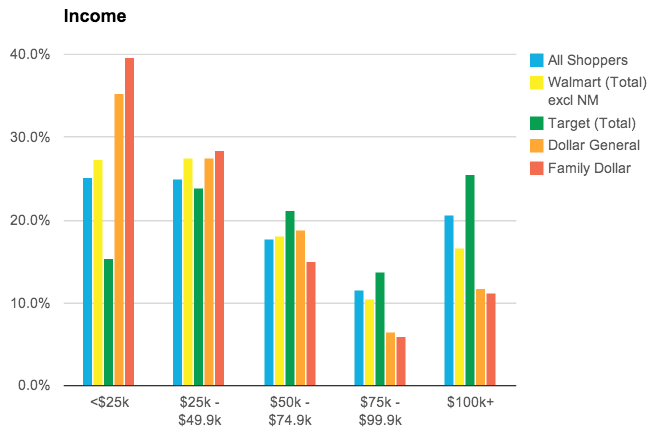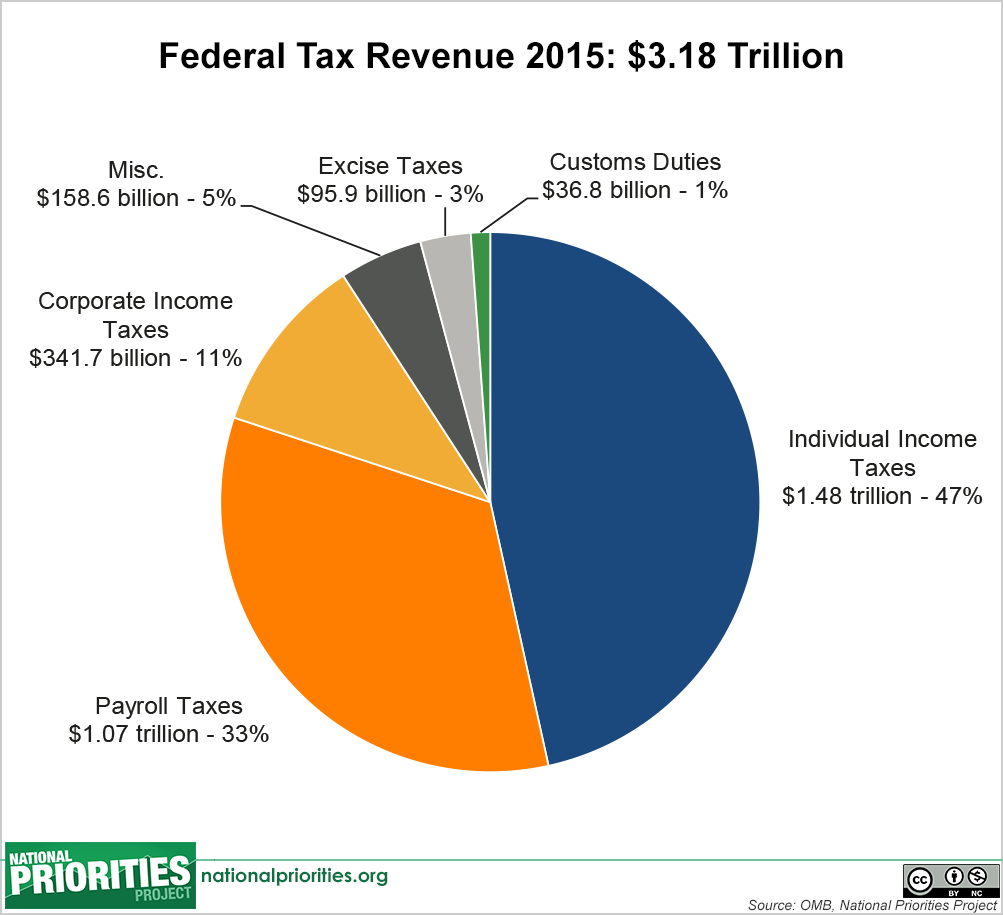- Joined
- May 22, 2011
- Messages
- 10,821
- Reaction score
- 3,348
- Gender
- Male
- Political Leaning
- Centrist
If 100% of the welfare needs of Walmart (and other low-wage retailers) were provided directly by the job's wages and benefits, who is ultimately paying for that? Well, frankly it's whoever shops there and buys their stuff. Companies generally do not aim to sell at an operating loss, so they will price their goods more or less relative to what it costs to get them on the shelves. So... who shops there and buys their stuff?

On the other hand, let's imagine Walmart (and the like) were given exemption from all minimum wage laws and forbidden from paying any wages or benefits to employees, and instead all such employees had all their needs met by federal welfare payments and benefits. Who would pay for that?
Well, indirectly speaking, whoever shoulders the federal tax burden. Roughly speaking, federal tax revenue is as follows:

And of those largest income and payroll tax wedges, who pays most of that?

So would someone like to explain to me why liberals are so hellbent on shifting the cost burden of providing for the welfare of low wage workers away from the rich, and more toward the poor? Because that is ultimately the effect of pushing the welfare costs of low-wage workers onto the companies that cater to poorer consumers, instead of "subsidizing" it with welfare.

On the other hand, let's imagine Walmart (and the like) were given exemption from all minimum wage laws and forbidden from paying any wages or benefits to employees, and instead all such employees had all their needs met by federal welfare payments and benefits. Who would pay for that?
Well, indirectly speaking, whoever shoulders the federal tax burden. Roughly speaking, federal tax revenue is as follows:

And of those largest income and payroll tax wedges, who pays most of that?

So would someone like to explain to me why liberals are so hellbent on shifting the cost burden of providing for the welfare of low wage workers away from the rich, and more toward the poor? Because that is ultimately the effect of pushing the welfare costs of low-wage workers onto the companies that cater to poorer consumers, instead of "subsidizing" it with welfare.
